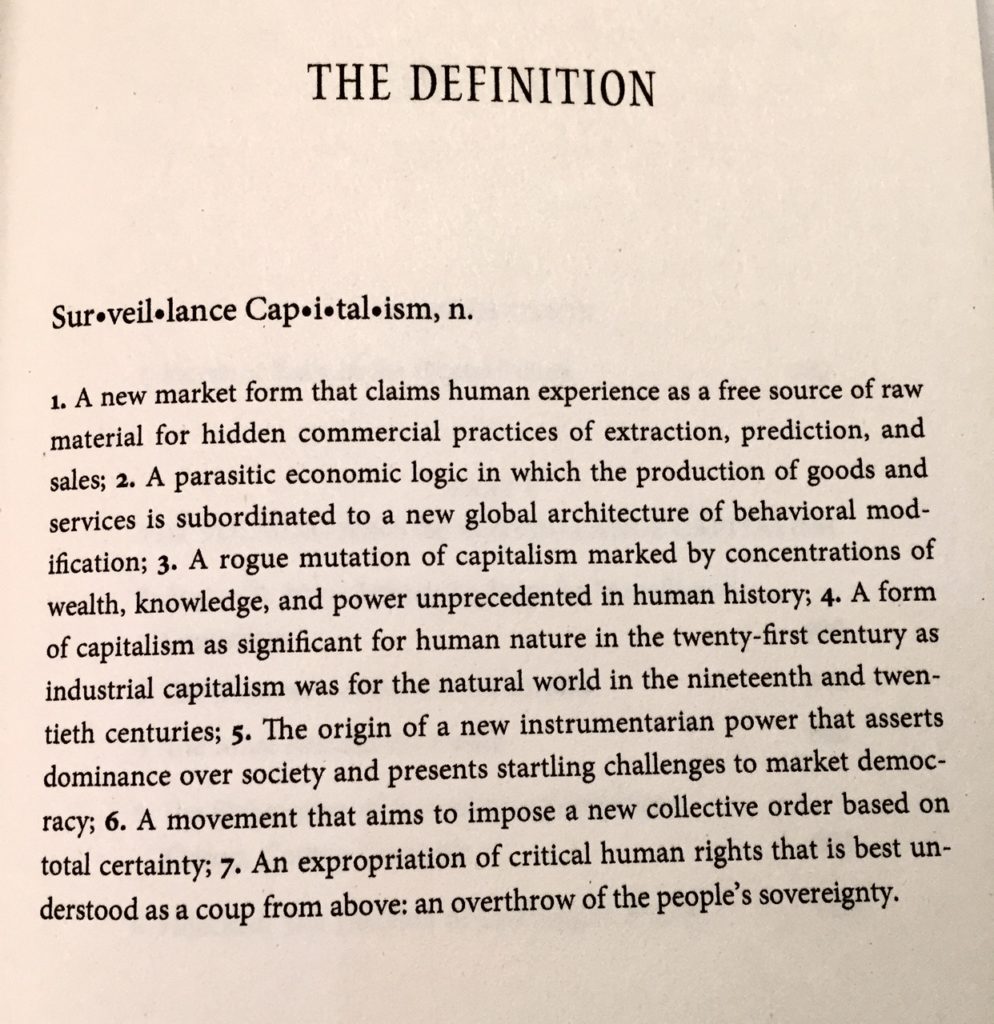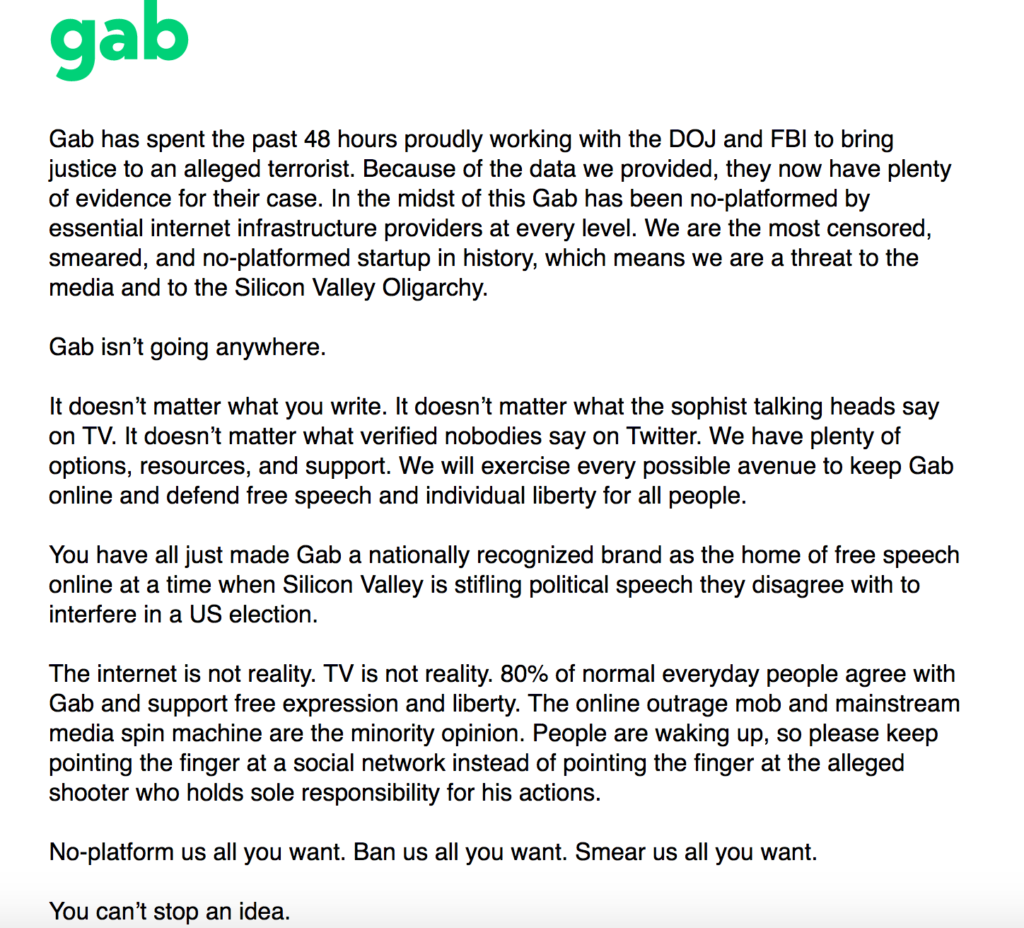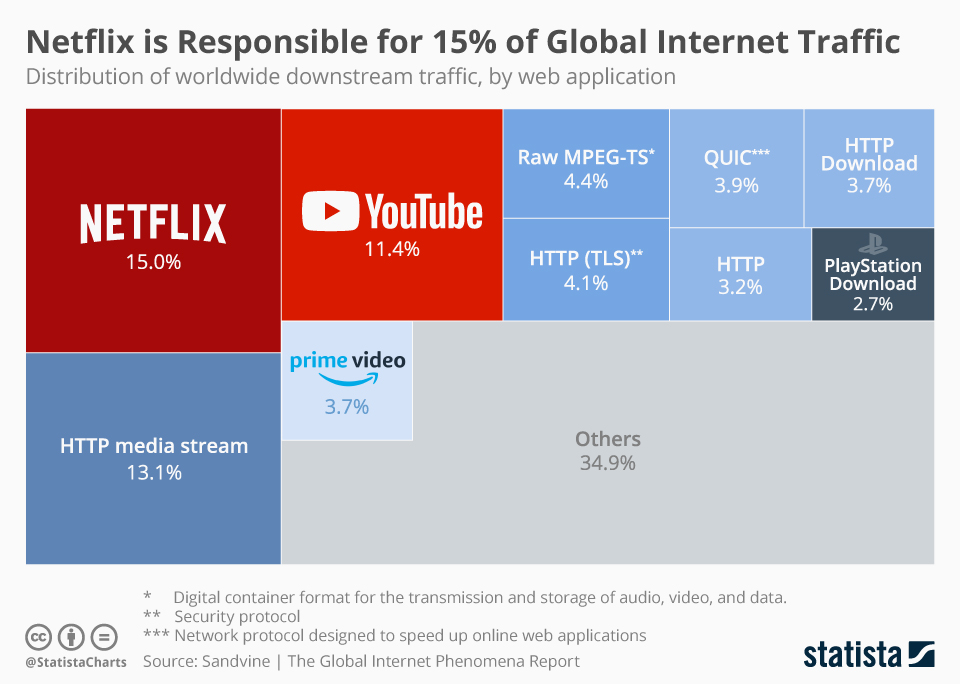Monthly Archives: October 2018
Surveillance Capitalism
Gab, Gab, Gab
From ArsTechnica:
Gab, a “free speech” alternative to Twitter that’s popular with the far right, has been shut down after losing service from a number of mainstream technology platforms, including PayPal, Joyent, Medium, and GoDaddy.
“Gab is under attack,” the company’s home page now reads. “We have been systematically no-platformed by App Stores, multiple hosting providers, and several payment processors.” Gab is working to get back online using new service providers.
The attacks on Gab follow revelations that the man accused of Saturday’s deadly mass shooting at the Tree of Life Synagogue in Pittsburgh appeared to be a regular Gab user. An account with his name was “rife with anti-refugee, anti-Semitic and white supremacist posts,” according to The Washington Post. One post complained about a “kike infestation.”
Here’s the aforementioned front page:
Note the claim about “80% of normal everyday people”. This is typical of the alt-right strategy of always claiming victimhood when challenged or banned. In an interesting Vanity Fair piece, Tina Nguyen quotes some of the posts that appeared on Gab celebrating what the alleged killer (Robert Bowers) had done. For example:
“I can’t wait to hear about how many lampshades the alleged synagogue shooter made out [sic] these jews in Pittsburg,” wrote @EmilyAnderson, followed by three laughing cat emojis; another user predicted that Bowers’s statement—“All these Jews have to die”—would “be a meme as long as the Internet lives. Which wont [sic] be long after this LOL.”
This is so utterly revolting that it beggars description. But it will not only continue — and will probably increase. As Nguyen observes,
the existence of Gab reflects a larger trend on the right, wherein those banished from mainstream social-media sites create evermore extreme platforms on which to express themselves. Fox News initiated this trend more than two decades ago: the cable channel was explicitly founded to offer a conservative take on the news, while Andrew Breitbart built his namesake site to cater to an even more conservative audience. The bigger the Internet has become, and the lower the cost of entry, the more likely sites like Gab.com and those further afield will proliferate—not just as social hubs, but as an alternate Internet with its attendant-support networks.
The deeper problem here is about what the Internet has revealed about humans. I’ve argued for a long time that one way of interpreting it is to think of the network as holding up a mirror to human nature. Much of what we see in it is uplifting, informative, inspirational and/or banal — unproblematic, in other words. But the mirror also reflects many of the ugliest sides of human nature, and the technology gives expression to that in ways that has real-world effects. Which is why the riposte that all those ugly sides of human nature already existed in the pre-Internet age rather loses its force: in earlier times, this ugliness was more localised and generally had limited traction (though of course there were genocidal exceptions). Now it can find expression anywhere.
It’s also strange how the technology seems to lead some people inexorably towards more and more extreme views — and then to action. Take the mail-bomb suspect, Cesar Altieri, whose social-media activities were usefully chronicled by the New York Times:
Until 2016, Cesar Altieri Sayoc Jr.’s life on social media looked unremarkable. On his Facebook page, he posted photos of decadent meals, gym workouts, scantily clad women and sports games — the stereotypical trappings of middle-age masculinity.
But that year, Mr. Sayoc’s social media presence took on a darker and more partisan tone. He opened a new Twitter account and began posting links to sensational right-wing news stories, adding captions like “Clinton busted exposed rigging entire election.” On Facebook, his anodyne posts gave way to a feed overflowing with pro-Donald Trump images, news stories about Muslims and the Islamic State, far-fetched conspiracy theories and clips from Fox News broadcasts.
By the time he was arrested in Florida on Friday, charged with sending pipe bombs to at least a dozen of President Trump’s critics, Mr. Sayoc appeared to fit the all-too-familiar profile of a modern extremist, radicalized online and sucked into a vortex of partisan furor. In recent weeks, he had posted violent fantasies and threats against several people to whom pipe bombs were addressed, including Representative Maxine Waters, a California Democrat, and former Vice President Joseph R. Biden Jr. His vehicle, a white van plastered with right-wing slogans, came to resemble a Facebook feed on wheels.
So he went from posting pictures of women, real estate, dining and cars to posting pictures of ISIS, guns and people in jail — and then to posting mail-bombs to prominent Democrats.
Anti-semitism continues to thrive online
From today’s New York Times:
SAN FRANCISCO — On Monday, a search on Instagram, the photo-sharing site owned by Facebook, produced a torrent of anti-Semitic images and videos uploaded in the wake of Saturday’s shooting at a Pittsburgh synagogue.
A search for the word “Jews” displayed 11,696 posts with the hashtag “#jewsdid911,” claiming that Jews had orchestrated the Sept. 11 terror attacks. Other hashtags on Instagram referenced Nazi ideology, including the number 88, an abbreviation used for the Nazi salute “Heil Hitler.”
The Instagram posts demonstrated a stark reality. Over the last 10 years, Silicon Valley’s social media companies have expanded their reach and influence to the furthest corners of the world. But it has become glaringly apparent that the companies never quite understood the negative consequences of that influence nor what to do about it — and that they cannot put the genie back in the bottle.
“Social media is emboldening people to cross the line and push the envelope on what they are willing to say to provoke and to incite,” said Jonathan Albright, research director at Columbia University’s Tow Center for Digital Journalism. “The problem is clearly expanding.”
When will this penny drop, one wonders. These companies can’t fix this problem, because their business models depend on allowing people to do what they like — and then reacting, ineffectually, after the fact.
Quote of the day
“Needing to have reality confirmed and experience enhanced by photographs is an aesthetic consumerism to which everyone is now addicted. Industrial societies turn their citizens into image-junkies; it is the most irresistible form of mental pollution.”
Susan Sontag, in On Photography
A picture is worth a trillion operations
This morning’s Observer column:
If you’re a keen photographer (which this columnist is) one of the things you prize most is a strange property called bokeh. It’s the aesthetic quality of the blur produced in the parts of an image that are not of central interest – the way a lens renders out-of-focus points of light. You often see it in great portraits: the subject’s eyes are razor-sharp but the – potentially distracting – background is fuzzy.
In the era when all photography was analogue, the only way to get good bokeh was to use lenses that produced narrow depth of field at wide apertures. Since the optical performance of most lenses decreased at such apertures, that meant that serious photographers faced a trade-off: their lust for bokeh involved compromising on overall image quality. And the only way round that was to spend money on lenses of complex design and exceedingly high optical quality. Neither of these came cheap: a photo-buff of my acquaintance, for example, recently laid out a small fortune for a Leica Noctilux f0.95 aspherical lens, which, its manufacturer claims, provides “unique bokeh”. (At a retail price of £9,100 it jolly well ought to.)
Enter Apple, which was once a struggling computer company…
Quote of the Day
The Internet is morphing into billion-channel TV
This is a sobering illustration. Netflix and YouTube now account for over a quarter of global data traffic on the network. The technology that was supposed to liberate people’s creativity, enable anyone to become a global publisher, foster user-generated-content and what Yochai Benkler called ‘peer production’, etc. etc. is evolving into billion-channel TV — a paradise for couch-potatoes. Mencken would not have been surprised. Nobody ever went broke underestimating the passivity of the average consumer.
Tech determinism and its consequences
This morning’s Observer column:
The polite term for the delusions that grip the lords of Silicon Valley (and their fans elsewhere) is technological determinism: the belief that technology is what really drives history and that they are on the right side of that history. It may also explain why they have manifested such blithe indifference to the malign effects that their machines are having on society. After all, if technology is the remorseless bulldozer that flattens everything in its path, then why waste time and energy fretting about it or imagining that it might be controlled?
Determinism, in that sense, removes human agency from the picture. The role assigned to people is essentially that of passive or active consumers of whatever wonders the tech industry chooses to lay before them. It also removes politics from the frame, because politics is about how societies make collective choices and determinism holds that there are no choices to be made. One of the infuriating tragedies of our time is how so many of our ruling elites seem to have swallowed this snake oil and how long it has then taken them to wake up to what’s going on…
Why political correctness has disabled the Democrats
Interesting — and I think perceptive — column by Tyler Cowen:
Imagine the perfect political and intellectual weapon. It would disable your adversaries by preoccupying them with their own vanities and squabbles, a bit like a drug so good that users focus on the high and stop everything else they are doing.
Such a weapon exists: It is called political correctness. But it is not a weapon against white men or conservatives, as is frequently alleged; rather, it is a weapon against the American left. To put it simply, the American left has been hacked, and it is now running in a circle of its own choosing, rather than focusing on electoral victories or policy effectiveness. Too many segments of the Democratic Party are self-righteously talking about identity politics, and they are letting other priorities slip.







